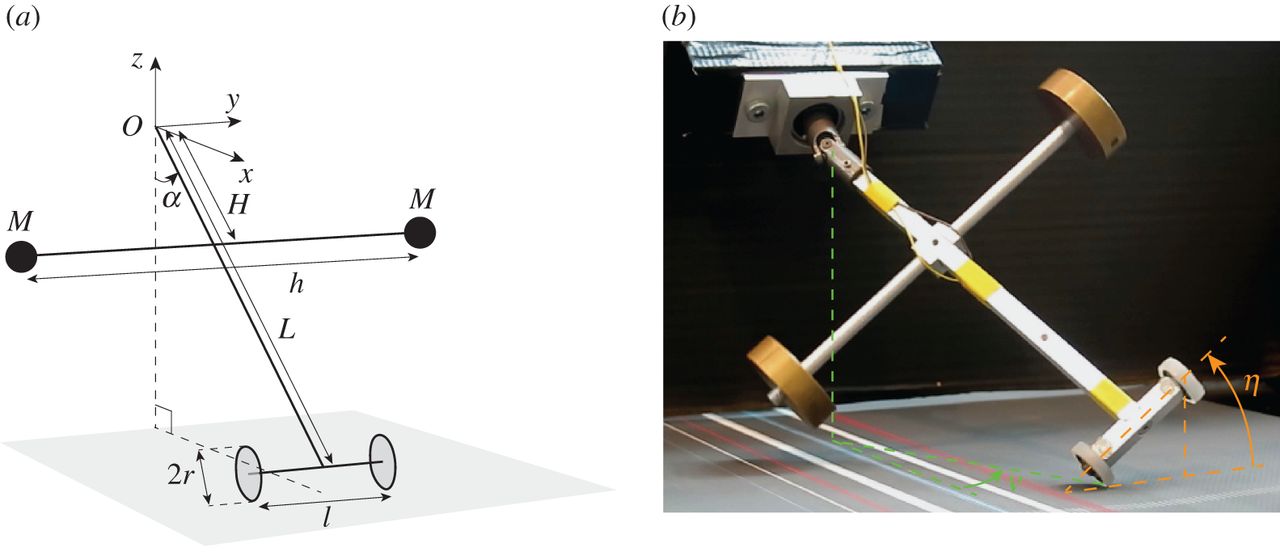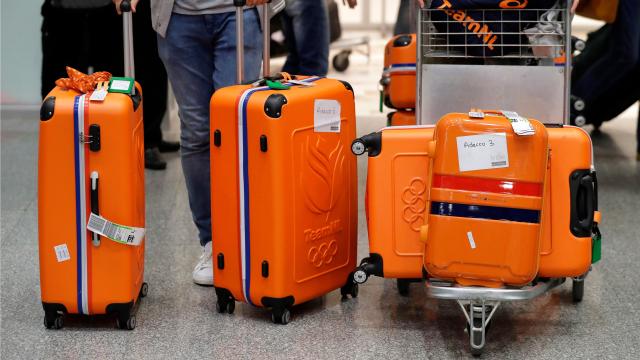Imagine: You’re at an airport with your fancy new bag rolling behind you. You have spent a little too much time deciding which plane snack will both taste good and not have too many kilojoules, and now must sprint to catch your plane. You make a turn and suddenly, your bag begins to wobble. No time to fix it, you are now dragging your suitcase sideways to the gate.
Image: AP
This is a problem for me, and I’m sure it’s a problem for at least some other people, because researchers at Paris Diderot University have decided it’s worth studying why rolly suitcases wobble. After making models and doing the maths thing, they think they have a solution.
The researchers point out that others have studied the problem using simplified models. But per this new study, published in the Proceedings of the Royal Society A, it turns out the effect comes from a complex relationship between the speed and the physics of the suitcase.

Experimental sketch and setup (Image: Facchni et al)
Testing their ideas required an incredibly silly experimental setup, with a simplified pair of wheels dragged along a treadmill by a bar and weights attached at the opposite end. They tracked the motion of the wheels with LEDs. The results were pretty clear — the rocking requires some sort of trigger.
“The rest position with the two wheels rolling on the belt is always stable,” the authors write in the study. “One has to perturb the suitcase to observe a rocking motion,” with something like an obstacle or a turn. They observed a special “critical angle” as well. If the rocking angle is higher than this critical angle, the rock increases over time until the suitcase flops over. If the angle is lower, the rocking decreases.
After a lot of maths, the researchers conclude that basically, the force of pulling something that can both be raised and lowered as well as move from side to side will cause the rocking after a disturbance. The “motion constraint” as the researchers call it, in this case, your arm holding and pulling the suitcase, prevents the disturbances to the suitcase’s motion from righting themselves.
The outcome from all this analysis is surprising, though: If you want to stop the suitcase from wobbling, it’s better to increase the speed. They note that “a non-experienced suitcase puller would not react this way. The outcome should not be dramatic for a suitcase, but it could be troublesome for a trailer towed by a vehicle.”
Obviously this was a test done with a model, not a suitcase, so do what you will with that information.
But dang, the more you know, I guess.
